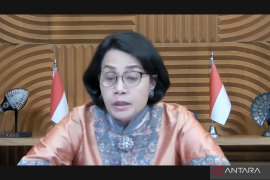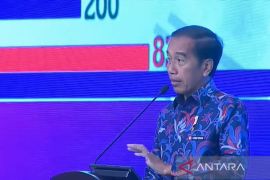Deputy for Macroeconomy and Finance Coordination, Ferry Irawan, stated that rising demand has led to price increases for certain food commodities.
"Thus, TPIDs in Java are expected to continuously monitor to ensure food supplies and prices are maintained," he said in a statement from the ministry on Friday.
He stated that inflation rates in West Java, Central Java, and East Java—the food production centers on the Java islands—are higher than in other provinces that are predominantly inhabited by consumers, such as Jakarta.
According to Statistics Indonesia, the year-on-year inflation rate in February 2024 reached 2.12 percent in Jakarta, 3.09 percent in West Java, 2.98 percent in Central Java, 2.75 percent in Yogyakarta, and 2.81 percent in East Java and Banten both.
"Synergy for controlling inflation between provinces in Java is a necessity because they are one interconnected regional unit," Irawan said.
To check the increase in prices of food, especially rice, the government is expediting the distribution of Food Supply and Price Stabilization (SPHP) rice to traditional markets, distributors, and modern retail stores, he added.
To control rising food prices, the government is taking several measures: providing rice assistance to 22 million families, intensifying cheap market operations and the Cheap Food Movement, and diverting government rice reserves to the commercial sector to stabilize premium rice prices.
"We hope that the momentum of inflation in Java, which continues to be under control, can be maintained through the synergy of regional inflation control programs to support national inflation achievement," he said.
The government aims to maintain the national inflation rate at a stable level of 2.5 ± 1 percent in 2024.
Related news: Food assistance and anti-inflation measures
Related news: Govt focuses on maintaining people's purchasing power amid inflation
Translator: Uyu Septiyati, Raka Adji
Editor: Anton Santoso
Copyright © ANTARA 2024












